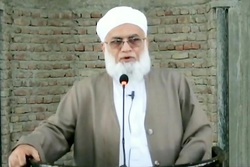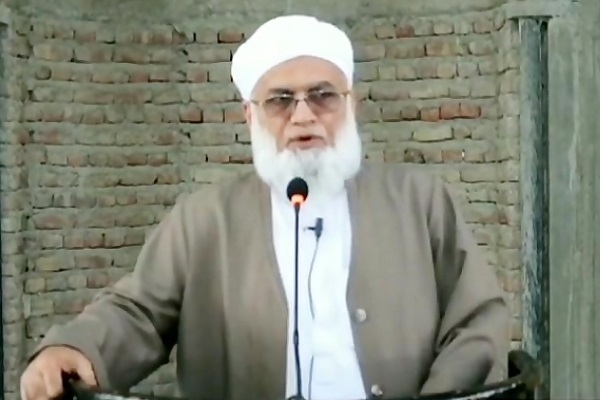Islam’s Political System in View of Hanafi Sunnis


Badpa expressed his views on the issue at a scholarly forum titled “Islam’s Political System in View of Hanafi Sunnis”, which was held at the Islamic Proximity Studies Research Center in Qom.
Following are excerpts from his statements at the forum:
Islam is the last and most perfect religion sent by God and that all Islamic schools of thought believe that Islam is comprehensive and covers all aspects of life, including politics and establishment of political systems. The Seerah of the Holy Prophet (PBUH), Caliphs, Imams (AS) and Mujtahids (Islamic scholars) is proof of this.
Scholars have pointed out three views about the position of political systems in Islam:
The first one believes in the separation of religion and politics. According to this view, which is a secular one, Islam does not deal with people’s social and political life. The main reason for holding this view is comparing Islam to Christianity and Judaism. Because some Christian and Jewish religious figures have done injustice in the name of religion, some hold the same view about Islam.
The second view is the opposite of the first one. It states that politics is the objective of religion. According to this view, whenever God’s religion has been sent via messengers, its objective has been establishment of government. Otherwise, this view holds, religion would be worthless.
The third view is in the middle and says politics is not the objective of religion but is good. It says that establishing government is favorable and important according to the religion although it is not the main objective.
These differences in views do not negate the need for the existence of government, because it is necessary.
Most Sunni and Hanafi scholars believe that in Islam, governance is not the main goal. To corroborate their view, they cite verses of the Quran that refer to the goal of the religion, like verse 56 of Surah Adh-Dhariyat: “I have not created mankind and jinn except to worship Me”.
Another reason they point to is that most prophets of God did not establish government. If the main objective of prophetic missions is establishing government, why is it that few of them reached such an objective?
The third reason is that considering governance as a necessary and major issue would undermine the status of worships.
There are different views about the idea that the ruler must be a Mujtahid. Hanafis and some Maliki Sunnis believe that Ijtihad is not a necessary condition for the ruler but is a priority.
After a political system gain legitimacy, we should explain the role of people in governance. It is among the certainties that dominance is only for God and a ruler only carries out God’s rules. With this description, the status of people in governance becomes clear.



